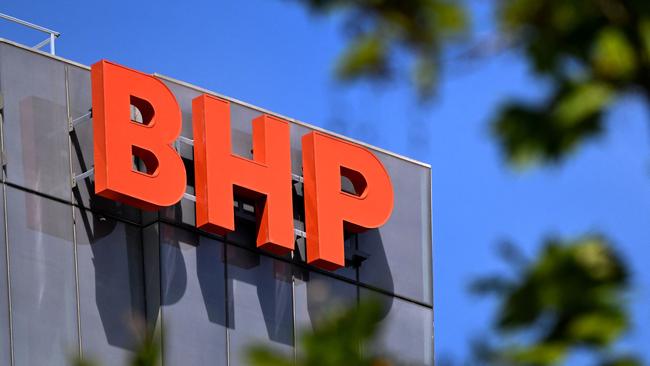
BHP’s challenge will be convincing not just Anglo American shareholders’ but its own shareholders about the merits of buying the rival miner’s assets for $40.5bn.
BHP’s shares closed down 4.6 per cent on Friday after the market first traded on news it was pursuing Anglo American.
Anglo American rejected the BHP offer on Friday, so BHP would have to improve the terms if it were to be successful.
While the deal may make sense for global funds such as Blackrock which own shares in both stocks, Australian investors have long memories when it comes to BHP’s acquisition history and remain nervous about it overpaying on transactions.
They will be asking questions about how the deal will be accretive for the company, not just about how it shapes its portfolio strategically.
For the assets its wants, BHP had offered £20.8bn ($39.7bn) and its bid valued the entire Anglo American at £31.1bn. BHP is offering 0.7097 shares per Anglo American share, plus shares in Anglo Platinum and Kumba South Africa iron ore operation which would be distributed to Anglo’s shareholders. It said the offer valued the assets for its bid at a 31 per cent premium to the target’s last closing price.
Some analysts believe if Rio Tinto was to come forward with a rival bid, it would need a solution for Anglo American’s coal assets in Queensland after Rio exited the space some time ago.
Although some shareholders remain sceptical, others say that the deal is more about a bet on the increase in commodity prices rather than BHP’s ability to operate the assets better, and the Australian company may also have a lower cost of capital than Anglo American.
Comparisons of the situation have been made to Glencore in its efforts to buy Teck Resources’ coking coal mines in Canada for $US8.9bn, where it was moving in on the target before it was in the line of sight of others that may come forward.
Questions still remain about the exit strategy for Anglo American’s De Beers diamonds business in South Africa, with the increasing popularity of laboratory grown diamonds versus those mined.



